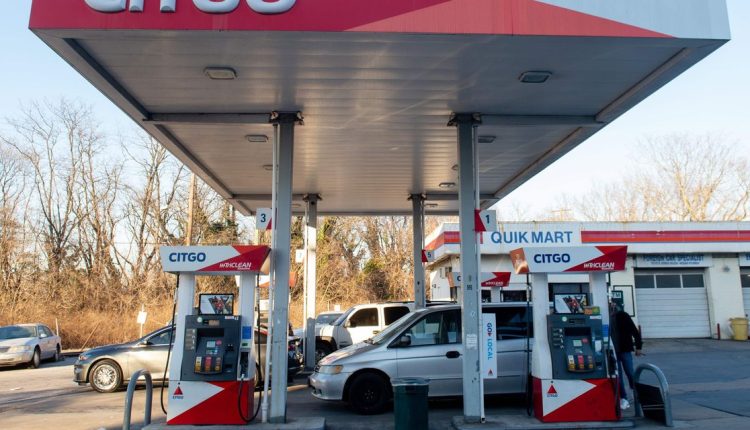Citgo Petroleum Corp. and Florida officials have warned that fuel sold at stations supplied by Citgo’s Tampa, Fla. terminal may be “contaminated,” complicating efforts by citizens preparing for a hurricane expected to reach the Gulf Coast later this week.
“It’s certainly not a good time for this to happen,” especially ahead of Tropical Storm Idalia,” Patrick De Haan, head of petroleum analysis at GasBuddy, told MarketWatch. Tampa is a very large port, he said. It takes in a lot of products for the state of Florida so “it’s a big headache.”
What happened?
In a news release dated late Sunday afternoon, Citgo said it discovered “contaminated product” at its Tampa, Fla. terminal on Saturday as a result of “a product routing issue.”
It also said that all Citgo marketers who “lifted gasoline and diesel from the terminal between 8 a.m. and 2 pm local time have been notified and asked to stop sales. Citgo said a “limited number of retail locations are affected” and was working to remove the product from the retail locations that received it.
Separately, the Florida Department of Agriculture and Consumer Services (FDACS) said Sunday that it identified a “potentially widespread fuel contamination caused by human error at the Port of Tampa.”
It posted a list of potentially impacted stations on X, and warned that any fuel purchased after 10 a.m. on Saturday, Aug. 26 from those stations has a “strong likelihood of being contaminated” with diesel fuel.
Rarity
De Haan said situations like this have happened in the past, but are “very rare.”
“The supply chain for fuels has many quality checks as fuel moves from production facilities to retail outlets,” said Brian Milne, product manager, editor, and analyst at DTN. “Every time fuel changes hands, there is testing and documentation to ensure the fuel meets appropriate specifications.”
The mention of “human error” suggests someone made an error that “fouled the fuel,” he told MarketWatch.
De Haan said it’s problematic for the retailer that sold that contaminated fuel, but generally the gas station, Citgo, will be “liable,” meaning if anyone needs repairs, those repairs will be covered.
The good news is that once the contaminated fuel is collected, “it can be essentially re-separated into usable products,” said De Haan. “So it’s not like they’re just going to be taking the fuel and throwing it out. They will be essentially re-refining it.”
What happens to my car?
If your vehicle is affected by the contaminated fuel, it may experience some engine issues, depending on how contaminated the fuel is, said De Haan.
We don’t know the ratio of contamination — whether it was 100% diesel fuel or simply contaminated with diesel but “people will generally notice engine issues, drivability issues because of the contaminated fuel,” he said.
He said those impacted should stop driving immediately and look into having the vehicle towed to a mechanic. The mechanic may decide to drain the tank but generally, it “should not be a catastrophic issue.” It certainly is a “very significant inconvenience.”
The FDACS has opened a consumer hotline to receive complaints from consumers. Those who believe they were sold contaminated gasoline may file a complaint by calling 1-800-HELP-FLA, or go online at https://www.fdacs.gov.
Citgo, meanwhile, has said that consumers who believe they purchased contaminated fuel on or after Saturday, Aug. 26, can initiate a claim through its Citgo Good Gas Guarantee program at https://www.citgo.com/contact-us.
Bad timing
The contaminated fuel issue couldn’t have come at a worse time.
A lot of people may be evacuating the area so it’s certainly not a good thing, said De Haan.
As of Monday morning the center of Tropical Storm Idalia was forecast to move over the extreme southeastern Gulf of Mexico by early Tuesday and reach the Gulf Coast of Florida on Wednesday, according to the National Hurricane Center. The storm is forecast to become a hurricane later Monday and become a “dangerous major hurricane” over the northeastern Gulf of Mexico by early Wednesday.
Ports along the western coast of Florida, including Tampa, Manatee, St. Petersburg, and Fort Myers, are now closed to inbound ship traffic because of the hurricane threat, said Milne. “Florida receives most of its fuel by marine vessel, so this does impact supply.”
He pointed out that hurricanes are a “double-edged sword when it comes to fuel prices.”
“Hurricanes are a “double-edged sword when it comes to fuel prices.” ”
Initially, “we see ‘panic’ buying, which boosts prices,” Milne said. “Yet hurricanes typically diminish demand since people in affected areas are less likely or disallowed from traveling as the storm passes through. Unless there’s sustained damage to production or logistics, hurricanes frequently depress demand after an initial price run-up.”
Given that, Milne said consumers in Florida will see an “initial bump in gasoline prices, which should quickly dissipate.”
Gasoline futures
RBU23,
RB00,
did see a rally in reaction to the storm, as well as unit outages at Marathon’s refinery caused by two tank fires on Friday that will work their way to retail prices nationwide, he said.
At the same time, the market is also “moving past the summer driving season and lower gasoline demand following the Labor Day weekend, which will mitigate any price gains that we are now seeing in the wholesale market,” said Milne.
As of Monday afternoon, the average price for regular unleaded gasoline stood at $3.779 a gallon, according to GasBuddy. That’s down from $3.826 a week ago.
Florida’s average price was at $3.671 Monday afternoon, with Tampa’s at $3.681, GasBuddy data showed.
Read the full article here

